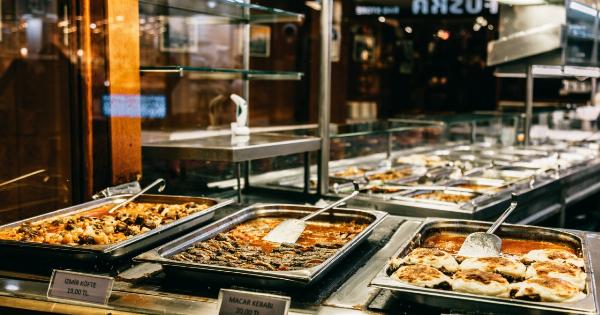Colonoscopy is a medical procedure that examines the colon and rectum of a person to evaluate any abnormalities. This procedure is often used to diagnose colon cancer, polyps, and other gastrointestinal disorders.
A successful colonoscopy requires proper preparation where the patient is required to empty their bowels before the test. Colonoscopy prep involves a clear liquid diet and taking laxatives to flush out the colon before the procedure. One of the biggest concerns people have when preparing for a colonoscopy is whether they should eat or not.
In this article, we will discuss the importance of proper colonoscopy prep and answer the question – to eat or not to eat?.
What is Colonoscopy Prep?
Colonoscopy prep involves the process of cleaning out the colon before the procedure. This process is essential to ensure that the colon is free from any fecal matter or debris, which can obstruct the view during the test.
Colonoscopy prep typically involves two stages:.
Stage 1: Preparing the Bowel
The first stage of colonoscopy prep focuses on clearing out the bowel by using laxatives or enemas. This process requires drinking large amounts of clear fluids to aid in the process of flushing out the bowels.
It is important to follow the instructions provided by your doctor regarding the type and amount of laxatives to be taken. You may need to start this stage of colonoscopy prep two to three days before the procedure.
Stage 2: Clear Liquid Diet
The second stage of colonoscopy prep involves following a clear liquid diet. This means avoiding solid foods and replacing them with clear liquids such as water, broth, gelatin, and sports drinks.
The aim is to avoid any food that could leave residue in the colon and obstruct the view during the test. You should avoid drinking colored liquids, dairy products, and carbonated beverages. You may need to follow the clear liquid diet for one to three days before the procedure.
The Importance of Proper Colonoscopy Prep
Proper colonoscopy prep is essential for the success of the procedure and getting accurate results.
A poorly prepared colon can affect the accuracy of the test, lead to the missed detection of polyps or other abnormalities, or result in the need for repeat tests. A poorly prepared colon may also cause discomfort and pain during the procedure and may prolong the recovery time. Therefore, it is crucial to follow your doctor’s instructions exactly as provided to ensure a smooth colonoscopy.
Should You Eat Before Colonoscopy Prep?
The short answer is no. You should avoid eating solid foods, fatty foods, fiber-rich foods, and dairy products before colonoscopy prep. These foods can leave residue in the colon and obstruct the view during the test.
As mentioned earlier, you will need to follow a clear liquid diet before the procedure. This means drinking plenty of water, sports drinks, broths, and other clear liquids that do not contain solid particles or fiber.
Can You Eat Before Colonoscopy Prep?
No, you should not eat solid foods before colonoscopy prep. The digestive process can take up to 72 hours to complete, and if there is any residue left in the colon, it can obstruct the view during the test and affect the accuracy of the results.
Additionally, eating solid foods can cause complications during the procedure, such as nausea, vomiting, and perforation of the colon wall.
What Can You Eat After Colonoscopy Prep?
After the colonoscopy is complete, you should wait for a few hours before eating solid foods to allow the digestive system to recover from the procedure. You can start with clear liquids and gradually introduce solid foods back into your diet.
It is essential to avoid foods that can cause gas, such as beans, lentils, broccoli, and cabbage. You should also avoid heavy, fatty foods and stick to a balanced diet for the next few days to allow the digestive system to recover fully.
Conclusion
Colonoscopy is a medical procedure that examines the colon and rectum for any abnormalities. Proper preparation is crucial to ensure the success of the procedure and accurate results.
Colonoscopy prep involves two stages of clearing out the bowel using laxatives and following a clear liquid diet. You should avoid eating solid foods before colonoscopy prep, as it can obstruct the view during the test and affect the accuracy of the results.
After the procedure, you should wait for a few hours before eating solid foods and avoid heavy, fatty foods and gas-producing foods.































